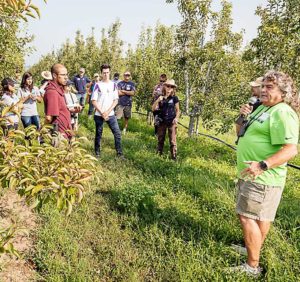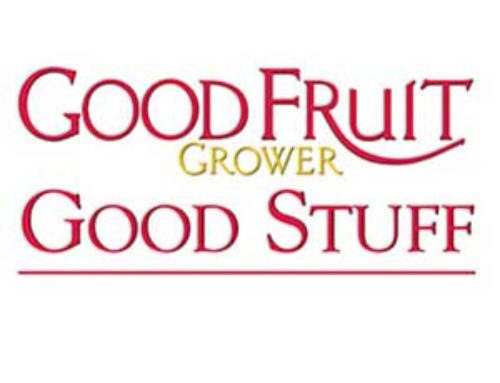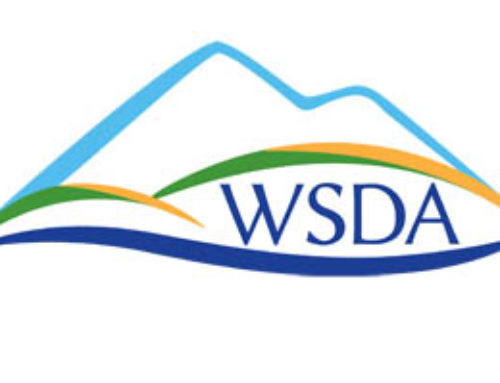Pesticide availability, H-2A wage rates, food safety requirements — what do these have in common? Federal regulators recently sought public comment on each of these issues before finalizing rules that have a real impact on growers.

Comments from individual farmers can provide important personal testimony that most federal agencies highly value. However, your day-to-day operations leave little time or desire for tracking the official journal of the U.S. government, the Federal Register. The Northwest Horticultural Council’s staff regularly tracks the Register for notices on important policies and materials, so you don’t have to.
A key role of the NHC is to identify and weigh in on proposals that affect tree fruit growers, packers and shippers. In 2022 alone, we submitted more than 100 comment letters to federal agencies, which are required by law to consider public comments during rule making. And there are certain occasions when your individual voice can reinforce and amplify comments provided by the NHC.
“The process has a bigger impact on farmers and their important materials than they might realize,” said Mark Hambelton, an organic and conventional apple and cherry grower in Quincy, Washington. Over the years, Hambelton has both informed NHC comments and submitted his own on tree fruit issues.
“The goal is to educate government agencies on what works and doesn’t work,” he said. “That it’s not as simple as ‘plant a tree and get an apple every other year.’”
Believe it or not, your perspective matters. Effectively written comments with strong justifications can influence the government’s decision-making. You know better than anyone why and how you use inputs in your orchard, how alternatives would or wouldn’t work, and how proposed regulations could affect the economics of growing fruit. Your knowledge and experience have authority. We may not win every battle, but we will surely lose if we don’t show up.
That is certainly the case with the National Organic Program, where the U.S. Department of Agriculture and the National Organic Standards Board (NOSB) are bombarded with thousands of form letters from advocacy groups seeking an end to all “chemical” use in organic food production.
“Seeing a grower’s name grabs their attention and provides authenticity,” Hambelton said. “It’s a personal connection.”
As published in the Federal Register, the current comment period for the NOSB’s annual spring review of organic production materials closes at the end of March. Harold Austin, director of orchard administration at Zirkle Fruit Co. in Selah, Washington, served on the NOSB from 2012 to 2017 and emphasizes the value of getting involved in providing comments.
“Commenting is an opportunity to help educate these board members, most of whom have no idea about our organic farming practices or the importance each of these materials up for sunset review has for our continued success,” Austin said. “Your voice has a tremendous amount of impact on this process and how these individuals will look at each material.”
When there is a proposed regulatory action where your voice would have particular impact, such as with the NOSB process, the NHC will send out a notification in our email newsletter (E-Notes) and share it with our members, such as the Washington State Tree Fruit Association. We can also assist you in developing and submitting your own comments.
It might not seem like it at first, but writing your comments is actually the easy part. Just speak to what you know and focus on the issues that concern you the most. There is no required comment structure, though most use a letter format, and there is no minimum or maximum word count, so your comments can be as simple as a couple of paragraphs. Explain what you do on your farm, how you do it, and why you do it. Illustrate the positive or negative impacts that a proposed rule or program would have on you directly.
As you write, remember to identify the specific part(s) of the rule on which you are commenting, express your support for or opposition to the rule as a whole, describe how your operation would be affected by the rule, and offer alternative options where appropriate. Include as many specific examples as possible, especially on questions of economic implications. The key is crafting constructive feedback, based on your on-the-ground experience, that clearly supports your claims.
Once your letter is complete, head online to federalregister.gov to submit it before the agency’s deadline. You can search via the agency name or docket ID. Click the green “Submit A Formal Comment” button, then fill out the fields of information, paste your comment letter or attach it as a PDF, then hit “submit.”
You did it! Raise a glass and pat yourself on the back.
If that still sounds daunting, remember you’re not on your own. The NHC is here to support you, whether that’s in reviewing relevant portions of regulatory proposals, crafting and submitting your comments, or whatever else you may need.
The private sector can be an information source as well. Suppliers and manufacturers keep an eye on policy changes that could affect their products or supply chains and may alert their customers or members on issues of interest to them. Check out Good Fruit Grower’swebsite, too.
No matter the topic or agency, your grower knowledge and perspective carries weight and helps counterbalance advocacy letter-writing campaigns. Use your industry expertise to inform and influence those who regulate agricultural practices and policies to your preferred outcome. Keep an eye out for announcements on public comment periods from industry associations, suppliers and ag news outlets. Talk to your colleagues about their commenting experience and discover ways to collaborate on future comments. Together we can amplify your voice in Washington, D.C.
Practice your commenting skills ahead of the National Organic Standards Board spring meeting
The National Organic Standards Board (NOSB) will hold its annual spring meetings in person April 25–27 in Atlanta, Georgia, with a virtual option for those unable to travel. It is important that the U.S. Department of Agriculture National Organic Program (NOP) hears from our industry. We encourage you to submit comments on materials under sunset review —materials allowed in organic production must undergo a review every five years — to voice the challenges faced by our organic farmers and stakeholders. Comments can be as simple as a paragraph or two expressing why these materials are important to your organic production.
Important materials before the NOSB this April include:
—Elemental sulfur as an insecticide, plant disease control and plant or soil amendment.
—Lime sulfur as an insecticide and plant disease control.
—Hydrated lime as a plant disease control.
—Plastic mulch and covers as weed barriers (petroleum-based other than PVC).
—A petition to add carbon dioxide as a plant or soil amendment.
The NOSB will also discuss proposals regarding “organic and climate-smart agriculture.” To see the full work agenda of materials and discussions, go to: bit.ly/nosb-work-agenda.
Feedback to the NOSB can be submitted via written and oral comments. Oral comments from growers are highly valued by the board. Time slots for three-minute oral comments are assigned on a first-come basis. The board will hear oral comments via two virtual webinars hosted by the NOSB on April 18 and 20, from 9 a.m. to 2 p.m. Pacific Time.
Additional information on the NOSB meetings can be found online at: bit.ly/nosb-meeting-atlanta.
If you have any questions or would like assistance submitting comments, please contact Dan Langager at the Northwest Horticultural Council by email at: langager@nwhort.org or by phone at: 509-453-3193.
—by Dan Langager
Dan Langager is the technical communications manager for the Northwest Horticultural Council. Based in Yakima, Washington, the NHC represents the growers, packers and shippers of apples, pears and cherries in Washington, Oregon and Idaho on federal and international policy and regulatory issues.







Leave A Comment